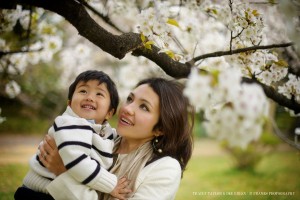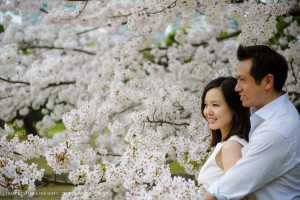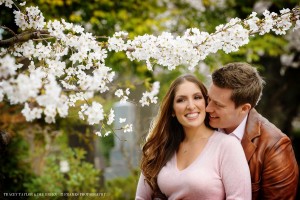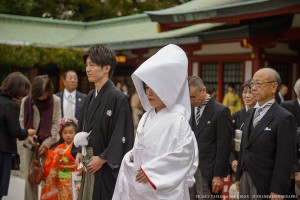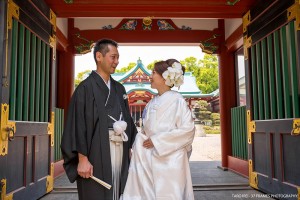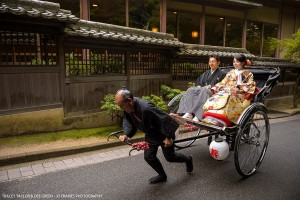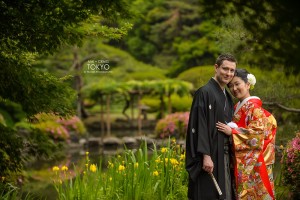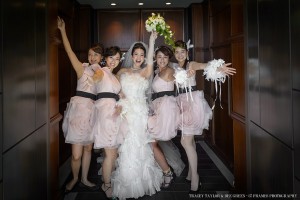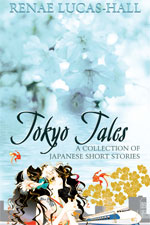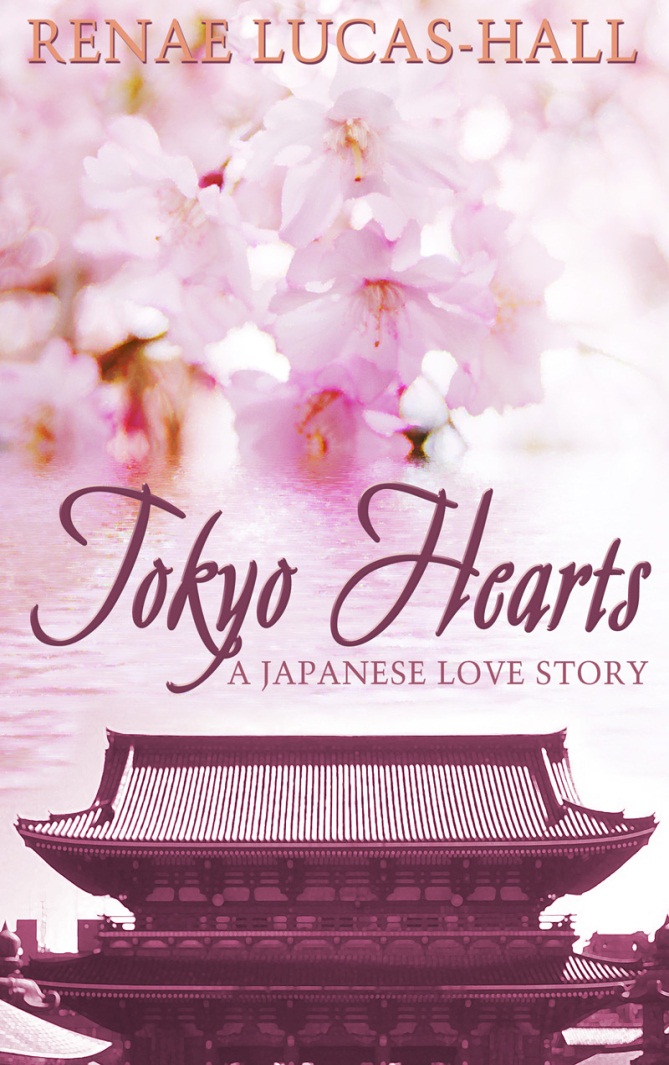Wishing you a great Easter! I hope your weekend is filled with lots of happiness, love, and chocolate!
Best Japan-Related Books in 2015/16
MY TOP 5 JAPAN-RELATED BOOKS FROM 2015
In 2015, I wanted to expand my horizons and read several Japan-related books written by contemporary well-known authors or emerging novelists who are starting to make a real name for themselves in the literary world. If you get the chance to read these any of these books you’re in for a real treat. I’ve also listed five books I’m looking forward to reading in 2016.
This list of books does not include any of the classics written by well-known Japanese authors such as Yukio Mishima, Natsume Sōseki, Jun’ichirō Tanizaki, Yōko Ogawa or Haruki Murakami but the writing styles are wonderful, the characters are memorable and the plots are well-developed and uniquely crafted.
1. Tokyo by Nicholas Hogg
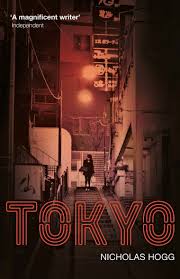 What I liked about this book: I was really looking forward to reading this book and it did not disappoint – I thoroughly enjoyed every page. I don’t want to give away too much but I can say it’s a very good reference for anyone planning to live in Japan. In the story, a social psychologist Ben Monroe returns to Tokyo after a failed marriage, determined to look for his former Japanese lover called Kozue. The characters in this story are so convincing they offer an excellent introduction to understanding the Japanese mind-set and the plot touches on a lot of important issues that haunt modern-day Japan. I thoroughly enjoyed “Tokyo” and I hope Nicholas Hogg writes another book set in Japan. He has a strong understanding of the Japanese culture and his writing ability is phenomenal.
What I liked about this book: I was really looking forward to reading this book and it did not disappoint – I thoroughly enjoyed every page. I don’t want to give away too much but I can say it’s a very good reference for anyone planning to live in Japan. In the story, a social psychologist Ben Monroe returns to Tokyo after a failed marriage, determined to look for his former Japanese lover called Kozue. The characters in this story are so convincing they offer an excellent introduction to understanding the Japanese mind-set and the plot touches on a lot of important issues that haunt modern-day Japan. I thoroughly enjoyed “Tokyo” and I hope Nicholas Hogg writes another book set in Japan. He has a strong understanding of the Japanese culture and his writing ability is phenomenal.
2. Fallen Angel: An Only in Tokyo Mystery by Jonelle Patrick
 What I liked about this book: I’ve lived and worked in Japan but I have a very limited understanding of the male host industry and I also know very little about the world of mizu-shōbai (the night-time entertainment business in Japan) so this book was a real eye-opener. The author has clearly done extensive research to make this book come to life and I was very impressed by how cleverly she meshed the intricacies of the Japanese culture into an intriguing and delightful story. It was also great to see the Japanese concepts “on” and “giri” expressed throughout the book. The writing clearly shows how these principles exist within the Japanese ethic system and how they apply to the lives of every Japanese person, regardless of their social standing. “On” is the Japanese concept that represents a sociological and psychological sense of indebtedness after receiving a favour. “Giri” is the give-and-take principle in social situations that drives the Japanese people to fulfil their duties. This is a fantastic book and I’m looking forward to reading the sequel “Idolmaker”.
What I liked about this book: I’ve lived and worked in Japan but I have a very limited understanding of the male host industry and I also know very little about the world of mizu-shōbai (the night-time entertainment business in Japan) so this book was a real eye-opener. The author has clearly done extensive research to make this book come to life and I was very impressed by how cleverly she meshed the intricacies of the Japanese culture into an intriguing and delightful story. It was also great to see the Japanese concepts “on” and “giri” expressed throughout the book. The writing clearly shows how these principles exist within the Japanese ethic system and how they apply to the lives of every Japanese person, regardless of their social standing. “On” is the Japanese concept that represents a sociological and psychological sense of indebtedness after receiving a favour. “Giri” is the give-and-take principle in social situations that drives the Japanese people to fulfil their duties. This is a fantastic book and I’m looking forward to reading the sequel “Idolmaker”.
3. Tokyo Kill by Barry Lancet
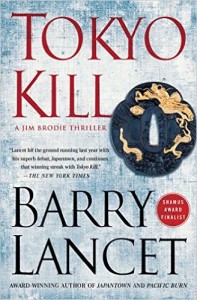 What I liked about this book: I don’t usually read thrillers but I do write Japan-related fiction so I was really looking forward to reading “Tokyo Kill”. In this book an antiques dealer turned detective becomes heavily involved with a group of killers in Japan. I was very impressed with all the references to the Japanese culture and I learned a lot about Chinese culture and history as well. Lancet obviously has an expert understanding of the Japanese mind-set, the Japanese culture, and how Japanese people behave in both casual and more formal situations in Japan.
What I liked about this book: I don’t usually read thrillers but I do write Japan-related fiction so I was really looking forward to reading “Tokyo Kill”. In this book an antiques dealer turned detective becomes heavily involved with a group of killers in Japan. I was very impressed with all the references to the Japanese culture and I learned a lot about Chinese culture and history as well. Lancet obviously has an expert understanding of the Japanese mind-set, the Japanese culture, and how Japanese people behave in both casual and more formal situations in Japan.
4. Naked As The Day: A Tokyo Novel by Marcus Bird
 What I liked about this book: This story is very well written with powerful prose, fascinating characters, and an absorbing plot. The author also captures the true essence of life in Tokyo as he tells the story of a young man in his twenties, living and working as an English teacher in Japan, and how this man develops physical and psychological aversions to his life and the people around him. The author’s writing style is reminiscent of the methods used by Haruki Murakami to portray the human condition. “Naked As The Day: A Tokyo Novel” surpassed all my expectations. This book is a must-read for anyone interested in Japan or if you’re simply looking for a great novel with a compelling storyline and captivating characters.
What I liked about this book: This story is very well written with powerful prose, fascinating characters, and an absorbing plot. The author also captures the true essence of life in Tokyo as he tells the story of a young man in his twenties, living and working as an English teacher in Japan, and how this man develops physical and psychological aversions to his life and the people around him. The author’s writing style is reminiscent of the methods used by Haruki Murakami to portray the human condition. “Naked As The Day: A Tokyo Novel” surpassed all my expectations. This book is a must-read for anyone interested in Japan or if you’re simply looking for a great novel with a compelling storyline and captivating characters.
5. The Translator by Nina Schuyler
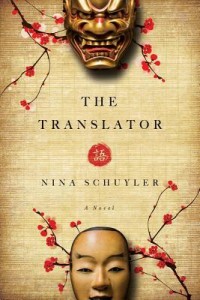
What I liked about this book: Schuyler’s understanding of the Japanese culture as well as the Japanese mind-set is very impressive. This is clearly evident in the dialogue between Hanne and the Japanese characters Moto and Renzo. I thoroughly enjoyed this wonderful interpretation of an American woman who travels to Japan to find herself as she searches for the answers that will validate her work as a translator. Every page is a testament to good prose and a captivating plot and this will hold your attention until the final page of this wonderful story.
THE BOOKS I’M LOOKING FORWARD TO READING IN 2016
1. Tokyo Totem – A Guide to Tokyo edited by C. Fruneaux and E. Gardner
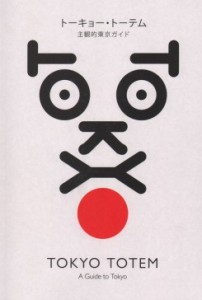 Synopsis: “This is a guidebook with contributions from “artists, designers, anthropologists, architects, bathhouse connoisseurs and many, many other seasoned urban explorers who will invite you to look, read and experience Tokyo differently.”
Synopsis: “This is a guidebook with contributions from “artists, designers, anthropologists, architects, bathhouse connoisseurs and many, many other seasoned urban explorers who will invite you to look, read and experience Tokyo differently.”
2. Yokohama Gaijin by George Lavrov
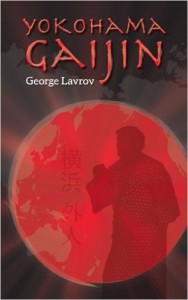 Synopsis: Yokohama Gaijin is George Lavrov’s personal story, told from his own eyewitness account. It recounts the horror of WWII carpet bombings of Japanese cities, including the tragic loss of his elder brother, Konstantin, who was killed instantly when a bomb from an American B-29 bomber made a direct hit on the Lavrov residence in Yokohama, Japan, on May 29th, 1945
Synopsis: Yokohama Gaijin is George Lavrov’s personal story, told from his own eyewitness account. It recounts the horror of WWII carpet bombings of Japanese cities, including the tragic loss of his elder brother, Konstantin, who was killed instantly when a bomb from an American B-29 bomber made a direct hit on the Lavrov residence in Yokohama, Japan, on May 29th, 1945
3. Tokyo Vice by Jake Adelstein
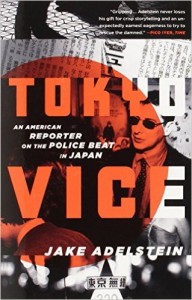 Synopsis: Jake Adelstein is the only American journalist ever to have been admitted to the insular Tokyo Metropolitan Police Press Club, where for twelve years he covered the dark side of Japan: extortion, murder, human trafficking, fiscal corruption, and of course, the yakuza. In “Tokyo Vice” Adelstein delivers an unprecedented look at Japanese culture and a searing memoir about his rise from cub reporter to a seasoned journalist with a price on his head.”
Synopsis: Jake Adelstein is the only American journalist ever to have been admitted to the insular Tokyo Metropolitan Police Press Club, where for twelve years he covered the dark side of Japan: extortion, murder, human trafficking, fiscal corruption, and of course, the yakuza. In “Tokyo Vice” Adelstein delivers an unprecedented look at Japanese culture and a searing memoir about his rise from cub reporter to a seasoned journalist with a price on his head.”
4. Washing Over Me by Benjamin Brook
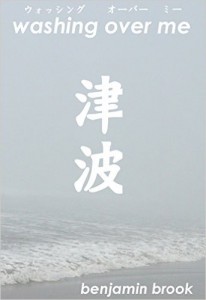 Synopsis: “Set against a backdrop of the Great East Japan Earthquake and Tsunami of 2011, Washing Over Me is a tale of loss and love, of the destructive power of nature and the resilience of humankind. In the height of the Tokyo summer, Shoichi sits at his wife’s bedside hoping that today will be the day when she wakes from her coma. Without Kimiko, he finds himself lost in the modern world. Frequently daydreaming, his mind wanders back through the past to key moments in their life together: breaded pork cutlets, unusually coloured tomatoes and the most beautiful sunrise he has ever seen. Shoichi also lives in fear. How will he cope with the loss of yet another person whom he loves so dearly?”
Synopsis: “Set against a backdrop of the Great East Japan Earthquake and Tsunami of 2011, Washing Over Me is a tale of loss and love, of the destructive power of nature and the resilience of humankind. In the height of the Tokyo summer, Shoichi sits at his wife’s bedside hoping that today will be the day when she wakes from her coma. Without Kimiko, he finds himself lost in the modern world. Frequently daydreaming, his mind wanders back through the past to key moments in their life together: breaded pork cutlets, unusually coloured tomatoes and the most beautiful sunrise he has ever seen. Shoichi also lives in fear. How will he cope with the loss of yet another person whom he loves so dearly?”
5. Six Four by Hideo Yokoyama

Synopsis: “For five days in January 1989, the parents of a seven-year-old Tokyo schoolgirl sat and listened to the demands of their daughter’s kidnapper. They would never learn his identity. They would never see their daughter again. For the fourteen years that followed, the Japanese public listened to the police’s apologies. They would never forget the botched investigation that became known as ‘Six Four’. They would never forgive the authorities their failure. For one week in late 2002, the press officer attached to the police department in question confronted an anomaly in the case. He could never imagine what he would uncover. He would never have looked if he’d known what he would find.”
…………………………………………………………………………………………………………………………………………….
If you love my recommendations and you’d like to read one of my own books check out “Tokyo 2060: Welcome to the Future”. This novelette is a futuristic sci-fi set in Japan forty-four years from now when androids and robots have become part of everyday life! It takes about 45 minutes to read and it’s only 99c/99p for a limited time.
Tokyo 2060: Welcome to the Future
In the year 2060, Poppy and Oliver Montgomery travel to Japan for a six-month stint in Tokyo. Oliver can’t wait to start working for a company that produces androids and Poppy is looking forward to shopping in the futuristic department stores. When this British couple begins their life in Tokyo, they are fascinated by all the latest cutting-edge technology in Japan. Poppy is even more delighted when her husband’s new company lends her an android for three days. Little do they know, this android hides a sinister secret that is about to turn their life in Tokyo into a disaster.
Spectacular Cherry Blossom Photos by Award-Winning Australian Photographers in Japan
It’s that time of the year again when the cherry blossoms are beginning to bloom in Japan and everyone in the Land of the Rising Sun is looking forward to celebrating this magnificent seasonal display of delicate pink and white blossoms with hanami (cherry blossom viewing) parties and picnics.
Unfortunately, I live in the United Kingdom so I will not be able to enjoy this fleeting pleasure. However, I thought this was the perfect time to show you a stunning selection of cherry blossom photographs taken by two fellow Australians, Tracey Taylor and Dee Green, from 37 Frames Photography. Tracey and Dee are multi-award winning photographers who have been in Japan since 1997. They specialize in awe-inspiring contemporary portraiture and wedding photography.
Tracey and Dee (pictured above) are also listed in the World’s Top 30 Wedding Photographers by Signature Weddings Magazine and they continue to win awards in Japan and overseas. These highly imaginative Australians are renowned for their stylish yet heart-warming photos as well as their extremely professional approach and this has given them the reputation as world-class photographers on an international scale.
If you’re looking for a very special photographer for a cherry blossom shoot, a spectacular wedding package, or a photographic session to capture your travels in Tokyo or other parts of Japan, you’ll need to book as soon as possible because Tracey and Dee at 37 Frames Photography are nearly fully booked for 2016. Their sessions are so popular you will need to be very quick to make a reservation. If you’re lucky, Tracey and Dee may be able to fit you in if there is an opening or a cancellation. I have provided their contact details at the end of this blog post.
Take a look at these beautiful portrait photographs with the cherry blossoms in the background. I’m sure you’ll agree Tracey and Dee have really captured the personalities in these pictures as well as this celebrated season in Japan.
As we’ve just celebrated Valentine’s Day and because Tracey and Dee are award-winning wedding photographers, I’d also like to share these spectacular wedding photos below taken by 37 Frames Photography. These gorgeous photos show brides in Japan in different types of wedding kimonos as well as Western-style bridal growns. In Japan, a bride wears a white kimono called an uchikake, covered in flowers and Japanese cranes as a symbol of good luck, to the wedding ceremony. The bride will change into a coloured kimono after the wedding ceremony and then change into a Western-style bridal gown for the reception.
I don’t think I’ve ever seen such beautiful photography set in Japan and I think it would be a great honour to take part in a photo session with 37 Frames Photography. Tracey and Dee are really passionate about creating wonderful memories for you, your family, and your friends in Japan or overseas and they have a complete range of full and mini packages. If you’re interested in enquiring about their services please visit their website 37 Frames Photography or you can email Dee Green directly at [email protected]. You can also phone Dee in Japan on +81 (0) 80-3271-9071.
The Most Difficult Student to Teach in Japan
I spent over fifteen years teaching the English language full-time or part-time to Japanese people and I have to say teaching is a very rewarding experience. Japanese students are generally enthusiastic, polite, on time for lessons, and they are nearly always interested in what you have to say as an ESL (English as a second language) teacher.
In my experience, most Japanese students take an interest in how you conduct the lesson, they are really keen to learn the English language, they want to hear your opinions, and they’re definitely committed to self-improvement.
There is, however, a certain type of student who is always really difficult to teach. Some of you will read this and think that type of student might be someone with strong political or religious views, but in my opinion most Japanese students have a gentle, non-aggressive nature. Some of you might presume I had problems with sleazy Japanese businessmen because I’m female and I was a 外国人 gaikokujin (foreigner in Japan) when I lived and worked in Tokyo, but I can honestly say I’ve never had those kind of problems. I think that if you dress and act appropriately in Japan then this should never really be an issue.
For me, and I’m sure a lot of ESL teachers in Japan would agree with this, the most difficult student to teach in Japan is definitely the quiet and indecisive student.
Your job as a teacher is to interact with students and improve their conversational English language ability. You really need to make sure the conversations in the classroom include all the students. You have to ensure there is plenty of two-way communication or interpersonal communication, meaning everyone in the room needs to have ample time to speak.
It’s more difficult to spot the quiet and indecisive student if you’re teaching group classes where teachers rotate on a regular basis, but if you’re conducting a private lesson it will only take a few minutes for you to recognize this more introverted student. You’ll also realize it’s going to take a lot of effort on your part to fill the rest of the fifty minute lesson when you have a student who just doesn’t want to talk.
In my experience, these quiet and indecisive students are often dressed very nicely but conservatively and they are always very polite, but every question you ask them is nearly always littered with blank stares and conversation fillers that show lots of hesitation. When you start speaking to them and if you ask them to talk about a certain subject you’ll hear them say ええ Ee, あのう Anou, まあ Maa, or ええと Eeto several times, which translate as Um or Let me think about that in English, but that’s probably all they’re going to say before they switch to silence. Other Japanese people will think of an answer quite quickly after these conversation fillers but the quiet and indecisive student will just bite their lip and look down. It’s at that point, you’ll realise it’s going to be an excruciatingly long lesson. In fact, these students will sit quietly and say nothing for the whole class if you don’t find ways to build their confidence and get them to talk.
Every student needs to feel they’re getting value for their money at their 英会話学校 eikawa gakkō (English conversation school). So how do you cope with the quiet and indecisive student and fix the situation so the student talks?
If you lack experience as an ESL teacher, it would be very easy to talk non-stop for the next fifty minutes and not worry about your student saying more than one or two words, but schools are now asking their students to evaluate their teacher and their lessons and although the student might not be happy to speak with you in English they may express their opinions very clearly and succinctly when they are talking to one of the Japanese administrators at the school. The professional ESL teacher will always take a different approach and think of ways to make the class interesting and get every one of their students talking.
Here are 8 helpful tips for dealing with the quiet and indecisive student:
1. You could write down three topics and ask the student to read all three out loud and then pick one of the topics. Ask them to expand on this as you ask them easy questions.
2. You could ask the quiet and indecisive student questions about famous places in Japan or even your own country and ask them if they have been there and what they saw, as well as how they felt when they were there.
3. When the indecisive students start to talk write down key adjectives like “interesting” and “beautiful” and ask the student to use these words in their descriptions to help them keep the conversation going.
4. You could also talk to the quiet and indecisive student about Japanese food. Everyone in Japan loves at least two or three famous Japanese dishes and this can be a great way to get the conversation flowing.
5. You could ask them to ask you 5 questions with the “5 W’s”: Who? What? When? Where? Why?
6. You could make the class fun by mentioning several 外来語 gairaigo (Japanese words based on a foreign language, in this case English) and ask the student to repeat the pronunciation after you, first with a Japanese accent and then properly in English. Common gairaigo are garasu or glass, handoru or handle, miruku or milk, and bīru or beer. There are many more gairaigo but if you live in Japan you’ll know quite a few of these already.
7. If it’s a group lesson you teach regularly, you could always tell the quiet and indecisive student you want them to prepare a short speech on three subjects related to the Japanese culture (or any other subject you think they would be interested in) for the class the following week. Tell them you would like them to talk to the class for just one or two minutes at the start of the next lesson about this without any interruption from the other students.
8. At the end of the class, you could also briefly but sincerely praise the quiet and indecisive student for trying so hard to speak English. This should help to build their confidence and they will most probably look forward to their next class with you.
Although quiet and indecisive students can be the most difficult students to teach, they can also be the students who provide you with the most rewarding teaching experiences. Remember, just because a Japanese student is unwilling to talk in a lesson this doesn’t mean they’re stupid, nor does it mean they’re quiet by nature. English language education is mandatory at high schools in Japan so every student has some knowledge of English even if it is limited and remember, students pay large sums of money to attend eikawa (English conversation) schools because they really want to speak English with confidence.
















